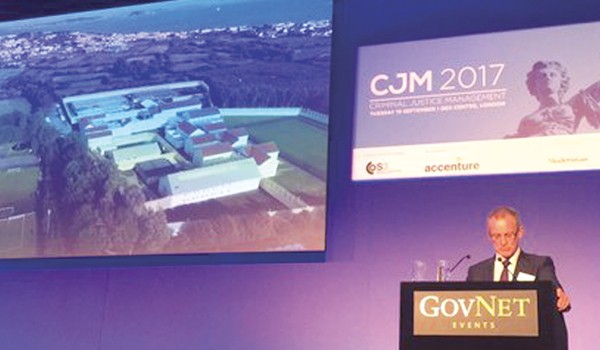Virtual fence disrupts drones used to smuggle into prisons
Drones are now being used on a weekly basis to deliver drugs, mobile phones, weapons and other contraband into prisons across the UK.
Drones are now being used on a weekly basis to deliver drugs, mobile phones, weapons and other contraband into prisons across the UK.
According to the UK-based company Drone defence, a £20 bag of heroin is worth £100 on the inside while a smartphone will sell for between £800 and £1,000.
It says since 2013, the reported number of incidents has increased dramatically across the country and the problem is now getting to epidemic proportions.
Daren Wood of the British Security Industry Association has warned that drones are not only causing increased concern, but pose a real threat to public safety in addition to its security.
Their capability to do harm is limited only by the individuals imagination, [and] the Association and its members recognise that in the wrong hands, to the determined individual they are a menace, he added.
Technology advancement in airframe and propulsion system design now mean it is possible to build very small inexpensive drones, which are easily operated by simple interfaces. The threat is not the drone itself, its the challenge of responding to them.
At last weeks Criminal Justice Management (CJM) conference in London, Guernsey Prison Governor David Matthews outlined how a new shield is a world first in stopping drones entering his prison.
Les Nicolle in Guernsey has become the first UK prison to build a Sky Fence, designed to prevent the smuggling of contraband to prisoners.
It is not a physical barrier, but an invisible wall that breaks the control and video link between the drone and its operator.
The 2,000ft high shield has 20 disruptors on the perimeter of the shield and the inside of the walls that sense any drones approaching the Guernsey prison.
The disruptors will jam the drones computer, blocking drone frequencies and deflecting them in-flight.
Mr Matthews, who has been prison governor on Guernsey for the past five years, said: This is the first time this technology has been used in any prison anywhere in the world and we would like to see it adopted in other UK prisons because it [smuggling] has become a significant problem. Drones can carry weapons, contraband, mobile phones and drugs. This is about prevention.
Richard Gill, founder and chief executive officer of the Nottingham company Drone Defence which spent 12 months working with another British company, Eclipse Digital Solutions, to create the Sky Fence explained: The Sky Fence disrupts the control network between the flyer and the drone. The drone then activates return to home mode and it will fly back to the position where it had signal with its flyer.
He said the invisible wall has been developed as a preventative measure that is not designed to knock airborne drones out of the sky.
It will look like it is bouncing off a forcefield. The operators video screen will go black and they will lose control. It wont bring the drone down because if it did and it hit someone or caused damage that would create issues of liability, he added.
The installation of the Sky Fence system which would cost prisons between £100,000 and £250,000 is part of a £1.7 million security upgrade at the Guernsey prison.



